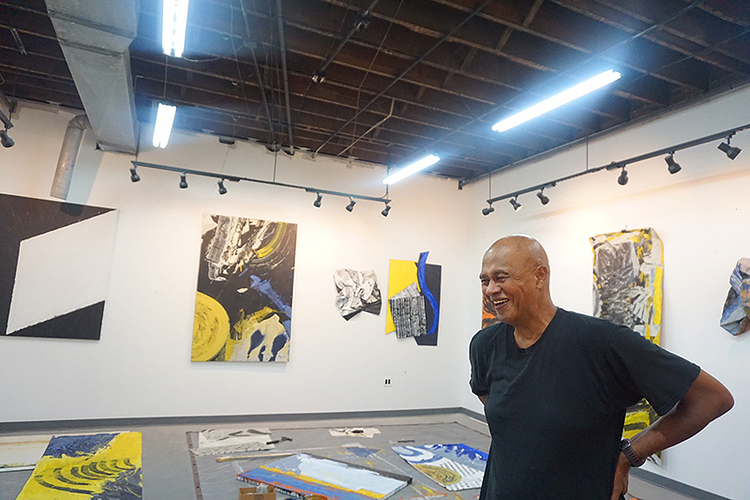At Open Space, the blog of San Francisco MoMA, writer and curator Taylor Renee Aldridge reflects on the under-the-radar art and activist communities that thrive in her hometown of Detroit, which has faced economic turmoil and major demographic changes in the past decade. Beyond the predatory property investors and opportunist coastal transplants, Aldridge finds networks of long-time Detroit resides, many of them black, who have weathered the city’s many storms and continue to make the city uniquely alive and creative. Here’s an excerpt:
And yet, if visitors look closer, dig deeper, pay attention to the current that hums beneath what’s visible, they will find that the superhuman organisms still remain at the city’s core. This persistence is not unlike what Ben Williams has termed “Black secret technology.” (Yes, Detroit is still very Black.) An undefinable Black, that is as pointed as the improvisational relationship between an organ player and his pastor at Tabernacle Missionary Baptist Church — my childhood church, where I first developed my beliefs around a power greater than myself — and as diasporic as the N’kisi outdoor sculpture installation at Dabls’ MBAD African Bead Museum, housed right across the street. This technology sources itself from an ancestral knowledge that has survived the Middle Passage and the Great Migration.
This city core is constantly in a state of churchicality, one rooted in a desire to escape through procession, testimony, and gospel. My churchicality is exclusive to Detroit, and may take place on the dance floor over a Osunlade set, or in fellowship with many artists in this city, persistently imagining how we can labor in ways that make us most happy.
These past few years, I have been in congregation with Detroit-based abstractionist Allie McGhee. Our relationship began with my wanting to write about him; despite his talents, his work has yet to receive any in-depth analysis and contextualization. I meet with McGhee on a monthly basis, collecting oral histories and talking with him about his practice (and many other things). This space for orality between a seasoned Detroiter and myself has become therapeutic for us both. After living nearly eighty years on this earth, McGhee has acquired a breadth of wisdom that always makes for an insightful dialogue …
I often think about Allie and his beliefs in the unknown, and how they run parallel to many of the optimistic futuristic beliefs bubbling in this city among organizers, activists, and arts practitioners. A specific type of speculative fiction and cosmological awareness is present among the communities here. These stories about and meditations on the future are more than just a genre: they have become an imagination-tool that time and again has allowed Detroiters to conceptualize a world beyond our immediate realities. The underbelly of Detroit (mostly marginalized) is in a constant state of imagination as a means of survival.
Image: Artist Allie McGhee in his Detroit studio. Via Open Space.
